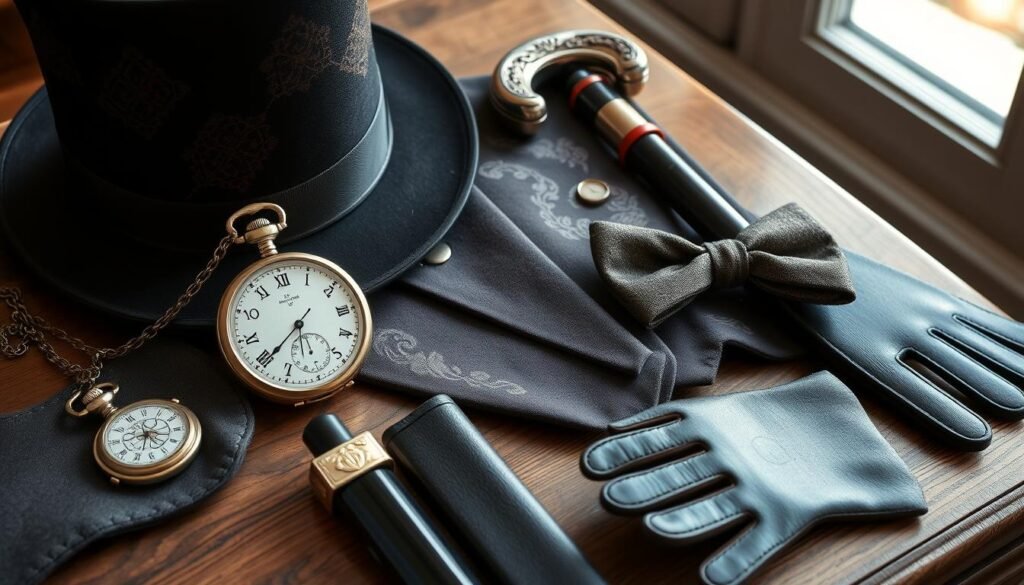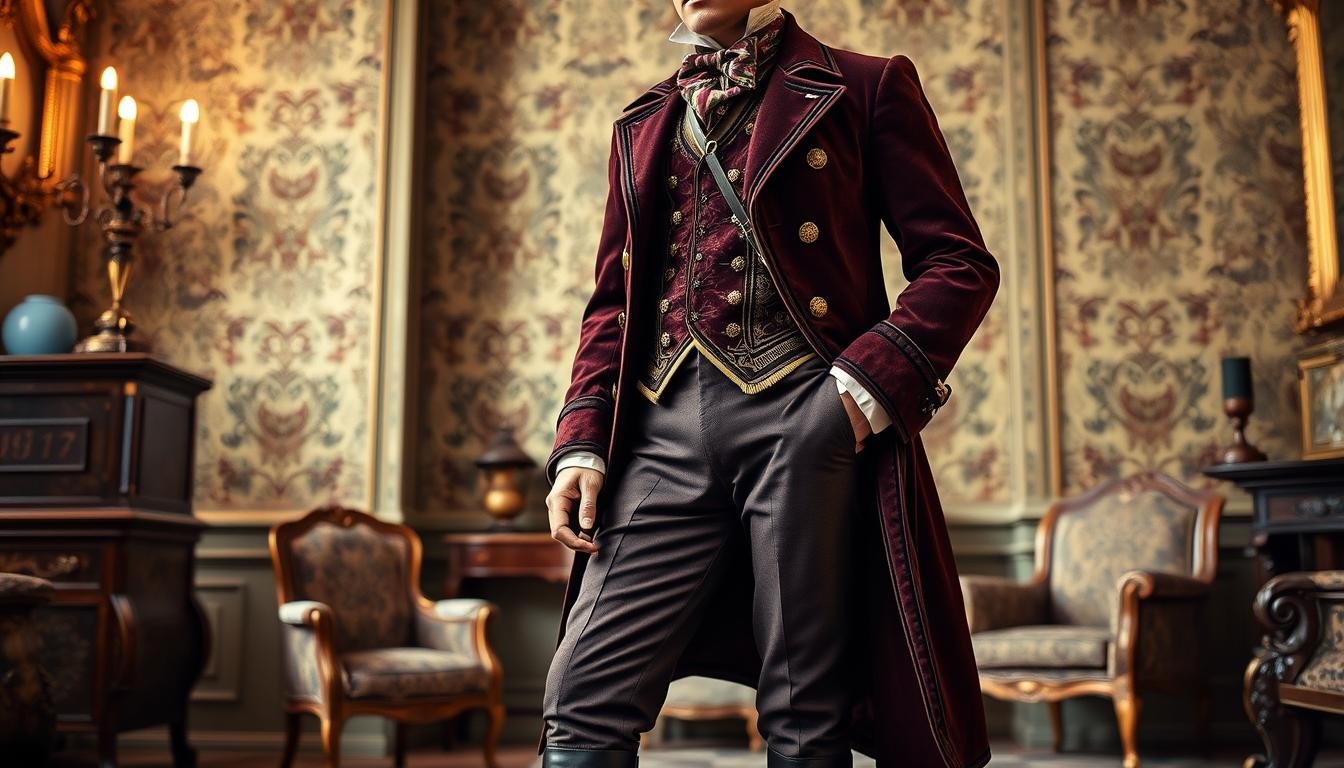Let’s explore 19th-century Victorian era men’s fashion. We’ll look at the key parts of a gentleman’s wardrobe from that time.
We’ll see how clothes showed social status and style. From fancy formal wear to everyday outfits, we’ll cover it all.
Every part of an outfit had meaning in Victorian times. Clothes showed who you were and what you believed.
Victorian fashion still charms us today. Let’s dive into this world of historical men’s clothing.
Overview of Victorian Fashion for Men
The Victorian era saw big changes in men’s fashion. The dress code for gentlemen became more refined during this time.
Victorian style reflected social and cultural shifts of the 19th century. Men’s fashion evolved to show elegance and attention to detail.
Suits became the main outfit for urban gentlemen. They had well-tailored jackets and trousers.
The three-piece suit, with its waistcoat, defined the Victorian gentleman’s look. It added to the refined style of the time.
Special garments became popular in Victorian men’s fashion. The frock coat had a long, fitted shape.
The morning coat had a unique cutaway front. These coats showed the style of the 19th century.
Essential Garments in Victorian Male Fashion
Victorian men’s fashion was all about elegance and sophistication. Tailcoats and frock coats were must-haves for formal wear.
These long, fitted coats had distinct tails and lapels. They showed status and made men look more masculine.
Waistcoats were worn under the coats. They often had fancy patterns or embroidery.
Trousers replaced old-fashioned breeches. The new style was more modern and practical.
These key pieces formed the base of a gentleman’s wardrobe. They showed the careful attention to detail in Victorian fashion.
Men could look refined by choosing and matching these items well. This style fit perfectly with the elegant era.
Fabrics and Patterns in Victorian Clothing
Victorian men’s fashion used luxurious fabrics like velvet and tweed. High-quality wool and cotton were popular choices for gentlemen’s attire.
These materials showed the era’s sartorial sophistication. They also reflected the strength of the Victorian textile industry.
Victorian suits featured stripes, checks, and intricate floral designs. These patterns added visual interest and showed social status.
Muted grays, browns, and blues were common for everyday wear. Bold reds and greens were saved for special events.
Victorian men’s clothing was more than just functional. It showed off the craftsmanship and innovation of the time.
Silk cravats and sturdy cotton shirts reflected the textile industry’s progress. They also showed the changing tastes of Victorian gentlemen.
Accessories to Complete the Victorian Look
Victorian gentlemen needed the right accessories for a polished look. Hats were crucial in daily 19th-century life. Top hats and bowlers were both stylish and practical.
Gloves were a must-have for Victorian men. They showed wealth and status. Gloves also added refinement to any outfit.

Proper footwear was essential for Victorian gentlemen. Leather boots and oxfords were the norm. These shoes had fancy patterns and detailed stitching.
Victorian footwear protected feet and added elegance. Pocket watches, cravats, and jewelry completed the refined look. These extras made a man stand out in society.
Notable Victorian Male Fashion Icons
The Victorian era saw many influential figures in men’s fashion. These Victorian style influencers shaped the historical fashion legacy that still inspires modern menswear.
Prince Albert was a key fashion icon. His refined taste set the standard for gentlemanly attire.
Charles Dickens was known for his dapper appearance. He often wore tailored coats and crisp, high-collared shirts.
The dandy movement also shaped Victorian male fashion. George “Beau” Brummell pioneered this aesthetic.
Dandies celebrated sartorial elegance and refined grooming. These 19th-century fashion trendsetters still influence today’s menswear.
